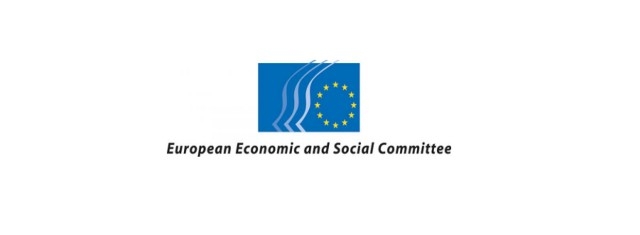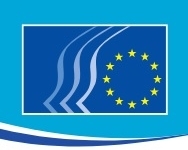News
Fight against antisemitism
European Economic Social Committee

EESC European Economic and Social Committee (Source: Copyright © European Union )
Antisemitism, which many had thought relegated to an inglorious past, has unfortunately returned to become more widespread in Europe than anyone ever predicted. France and Germany report an increase in offences against Jews of 74% and 60% respectively.
Last year, the EU Agency for Fundamental Rights (FRA) conducted the biggest ever survey of Jewish people, covering twelve Member States and involving almost 16 500 Jews. The results were shocking, with 90% of the respondents sensing a growing antisemitism and 30% having even been themselves harassed.
Last year, the EU Agency for Fundamental Rights (FRA) conducted the biggest ever survey of Jewish people, covering twelve Member States and involving almost 16 500 Jews. The results were shocking, with 90% of the respondents sensing a growing antisemitism and 30% having even been themselves harassed.
Against this background, the European Economic and Social Committee (EESC) invited Raya Kalnova (European Jewish Congress), Michael Bilewicz (Centre for Research on Prejudice, University of Warsaw) and Joel Kotek (Free University of Brussels ““ ULB) to discuss antisemitism in Europe at its 543rd plenary session.
Fear has become a constant part of Jewish people's lives and an alarming 38% are considering emigrating.
Fear has become a constant part of Jewish people's lives and an alarming 38% are considering emigrating.
Introducing the debate, EESC President Luca Jahier said that the issue was central to what we stand for in Europe: Recent events are showing us that we must not let our guard down and think that the sixty years of peace in Europe can be taken for granted. And although our fundamental rights are enshrined in Article 2 of the Treaty of the European Union, we need to defend them every single day.
Ms Kalnova said that the Jewish World Congress felt an increasing sense of emergency because places of worship, community institutions, and even Jewish shops and homes were being targeted. Wearing a kippa in public is unsafe today, she said, and identifying oneself as a Jew in social media is often an invitation to harassment.
Ms Kalnova said that the Jewish World Congress felt an increasing sense of emergency because places of worship, community institutions, and even Jewish shops and homes were being targeted. Wearing a kippa in public is unsafe today, she said, and identifying oneself as a Jew in social media is often an invitation to harassment.
Many Jewish children were unable to attend state schools. Antisemitic threats were becoming more common in schools, universities and workplaces all over Europe. If they send their kid to a state school, the kid is a target. If they send their kid to a Jewish school, the school is a target, said Ms Kalnova, highlighting the dilemma Jewish parents are facing.
Equally alarming is the fact that 1 out of 10 young people never heard of the Holocaust. In France it is 1 out of 5.
To combat antisemitism, it is important to know what it actually is. The definition of antisemitism of the International Holocaust Alliance has become a reference to governance and civil society. To this end, a "Catalogue of Policies to Combat Antisemitism" was presented during the Austrian EU presidency.
Equally alarming is the fact that 1 out of 10 young people never heard of the Holocaust. In France it is 1 out of 5.
To combat antisemitism, it is important to know what it actually is. The definition of antisemitism of the International Holocaust Alliance has become a reference to governance and civil society. To this end, a "Catalogue of Policies to Combat Antisemitism" was presented during the Austrian EU presidency.
The definition has already been endorsed by eleven European Member States, as well as the European Parliament, the European Council and many governmental and non-governmental organisations. Civil society organisations also need to endorse and apply this definition and offer leadership in addressing the problem.
The message today is that antisemitism is not only a threat to the Jewish community, warned Ms Kalova. Radicals are gaining strength and the forces of moderation have been weak. Populism, intolerance and xenophobia are threatening our democratic foundations.
Mr Bilewicz added that antisemitism in western European countries was more linked to the Muslim community, while in Eastern Europe it had its roots not just in right-wing extremism, but also in the Christian community.
The message today is that antisemitism is not only a threat to the Jewish community, warned Ms Kalova. Radicals are gaining strength and the forces of moderation have been weak. Populism, intolerance and xenophobia are threatening our democratic foundations.
Mr Bilewicz added that antisemitism in western European countries was more linked to the Muslim community, while in Eastern Europe it had its roots not just in right-wing extremism, but also in the Christian community.
A survey conducted in 2017, for instance, revealed that in Slovenia, Slovakia, the Czech Republic and Bulgaria, every 4th or every 5th inhabitant would not accept a Jew as a neighbour. In Eastern Europe particularly, Jews are themselves blamed for growing antisemitism by 1 out of 4. Many Europeans (50% in Poland, 37% in Austria, 32% in Germany) also believe that Jews exploit the Holocaust.
Against all expectations, the conspiracy theory that Jews have too much power is again back in our society, in the media and sometimes even in our parliaments, said Mr Kotek. Hatred against Jews was more perceptible than ever and they were even being targeted by the yellow vests movement in France.
The Jewish people are declining in Europe. In Poland there were 3.3 million Jews before the 2nd world war, and now there are only around 20 000. It is therefore important to normalise our relations, said Mr Kotek in a call for mutual understanding.
Against all expectations, the conspiracy theory that Jews have too much power is again back in our society, in the media and sometimes even in our parliaments, said Mr Kotek. Hatred against Jews was more perceptible than ever and they were even being targeted by the yellow vests movement in France.
The Jewish people are declining in Europe. In Poland there were 3.3 million Jews before the 2nd world war, and now there are only around 20 000. It is therefore important to normalise our relations, said Mr Kotek in a call for mutual understanding.
During the debate, many EESC members expressed their support for the Jewish community, as well as their commitment to the fight against any discrimination of minorities.
It is our duty to fight any act of antisemitism in Europe, said employers' group president Jacek Krawczyk. It is antisemitism that led to the Holocaust. It is our obligation to preserve the memory of the causes of that enormous tragedy. The EU founding fathers realised this and that is why they started the European project ““ to make sure that this will never happen again. Eighty years after the Second World War started, it would be a serious mistake to forget this. We should all think of this when choosing whom to vote for in the European elections.
It is our duty to fight any act of antisemitism in Europe, said employers' group president Jacek Krawczyk. It is antisemitism that led to the Holocaust. It is our obligation to preserve the memory of the causes of that enormous tragedy. The EU founding fathers realised this and that is why they started the European project ““ to make sure that this will never happen again. Eighty years after the Second World War started, it would be a serious mistake to forget this. We should all think of this when choosing whom to vote for in the European elections.
Arno Metzler, president of the Diversity Europe group, stressed: We all should protest and speak up frankly and freely in our personal circles when we hear unpleasant jokes about Jewish people and the past. I think it is a public obligation and it is also a personal obligation to defend our European values.
From the workers' group, José Antonio Moreno Díaz, who is also the president of the EESC group of Fundamental Rights and the Rule of Law, said: Tough times are those when the evident needs to be explained. We need to explain art. 2 of the EU Treaty, we need to remind everyone of what equality, pluralism and diversity mean. People who do not remember their history are condemned to repeat it. We must leave no room for discrimination. Tolerating intolerance will destroy democracy, and we have some experience of that in Europe. Political forces which understand what art. 2 means should unite in isolating and expelling fascists from their ranks.
Germany's Foreign Minister Heiko Maas has already announced that the fight against antisemitism in the EU should be one of his country's priorities during its EU presidency in the second half of 2020.
From the workers' group, José Antonio Moreno Díaz, who is also the president of the EESC group of Fundamental Rights and the Rule of Law, said: Tough times are those when the evident needs to be explained. We need to explain art. 2 of the EU Treaty, we need to remind everyone of what equality, pluralism and diversity mean. People who do not remember their history are condemned to repeat it. We must leave no room for discrimination. Tolerating intolerance will destroy democracy, and we have some experience of that in Europe. Political forces which understand what art. 2 means should unite in isolating and expelling fascists from their ranks.
Germany's Foreign Minister Heiko Maas has already announced that the fight against antisemitism in the EU should be one of his country's priorities during its EU presidency in the second half of 2020.
more information: https://www.europa.eu
Antisemitism European Economic Social Committee European Union Countries 2019 European Countries European Union European Union European Union Countries European Union Members
Liability for this article lies with the author, who also holds the copyright. Editorial content from USPA may be quoted on other websites as long as the quote comprises no more than 5% of the entire text, is marked as such and the source is named (via hyperlink).






